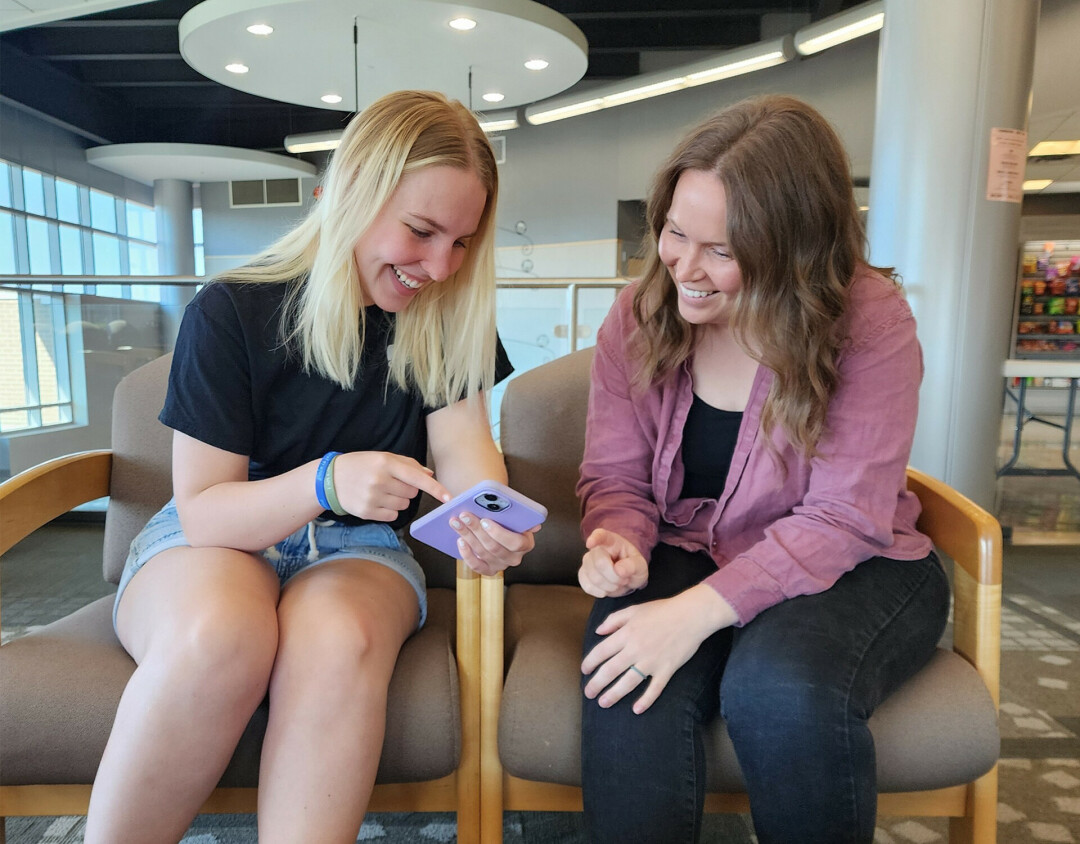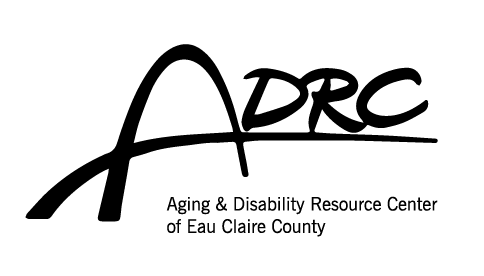There’s an ‘App For That’: CVTC Students, ADRC Create Dementia Resource Guide
ADRC of Eau Claire County and local students work to support caregivers
Alyssa Van Duyse / Chippewa Valley Technical College

It’s no surprise that Chippewa Valley Technical College student Jordy Miles wants to make the lives of people living with dementia and those who care for them easier. Miles’ grandmother battled dementia and died recently from the disease. Miles, 30, who lives in Eau Claire, also owns and runs an adult family home and realizes the struggles of people who care for those with dementia.
“I was comfortable in that area, and I’m interested in that,” said Miles, a nursing program student at CVTC. “I have utilized (online applications) as a caregiver, and I knew it would be an advantage to other caregivers to research apps out there and put a guide together.”
As part of a service project requirement for CVTC nursing program students, Instructor Dawn Barone suggested Miles and her group collaborate with the Aging & Disability Resource Center of Eau Claire County (ADRC).
Lisa Wells, dementia care specialist and grief support specialist with the ADRC, was excited to use the nursing students to complete a project Wells had been considering for a while: an online guide and paper brochure of top-rated online applications to help caregivers and dementia patients.
With so much to do in the area of dementia and grief, Wells often has a difficult time completing projects that get pushed to the back burner.
The group of four students determined they would research certain types of online applications, put them into categories and create a guide for caregivers called App for That. ... The apps include therapeutic music, games that stimulate conversation, interactive games, a dementia guide, and medication management, to name a few.
“I’m happy to partner with students,” she said. “I can’t do it all myself. This project is one that had come up over and over. Family caregivers were talking about a resource guide of online apps. But it was a daunting task for me. I threw it out to the instructor … and the students were on board.”
Karly Kibbel, a CVTC Nursing program student, worked in a retirement facility for a few years where memory care was a part of service to residents and was part of the project's efforts.
As Wells inferred, the nursing students recognized right away that the project had the potential to be overwhelming. With all of the applications out there, Miles and Kibbel said they might still have been researching today if they hadn’t put parameters on the project.
“At first, we didn’t know what we didn’t know. We had no clue where to start. We didn’t even really know exactly where we were going with this project,” Kibbel said. “We kind of decided to figure out what we wanted to do with the information we were given.”
The group of four students determined they would research certain types of online applications, put them into categories and create a guide for caregivers called App for That.
Kibbel and Miles focused on apps that help with mental stimulation, relaxation, communication, independence, and improved mood. While patients receive those benefits from the apps, caregivers also may feel less stress and an increase in support by helping dementia patients utilize these apps.
The apps include therapeutic music, games that stimulate conversation, interactive games, a dementia guide, and medication management, to name a few.
"What I really want is for (students) to understand that people living with dementia are more than the disease. Despite the illness, they can live well if they have support." –Lisa Wells, ADRC dementia care and grief support specialist
“We were looking for more things that help caregivers to take the burden off of them,” Miles said. “Over time they become exhausted. We were looking for things that could lighten caregivers’ load and wouldn’t be super complicated.”
Kibble agreed and said they didn’t want “information overload” for caregivers.
“Taking care of a family member with dementia is already overwhelming,” she said. “To have a ton of information just bombarding you does not help with the transition.”
Wells said the both students and the community are also benefitting from their work.
“It’s giving the students a better understanding of dementia,” Wells said. “What I really want is for them to understand that people living with dementia are more than the disease. Despite the illness, they can live well if they have the support.
“I appreciate the opportunity this partnership has provided, and I hope we can continue that partnership with CVTC.”
View the App for That guide online • Visit cvtc.edu to find more information about the college • Keep up with the ADRC of Eau Claire County on Facebook


